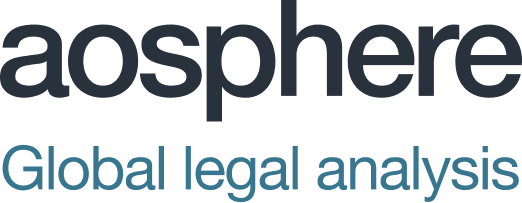Introduction
In recent months, regulators in the Abu Dhabi Global Market (ADGM) and the Dubai International Financial Centre (DIFC) have published consultation papers proposing amendments to their regulatory frameworks for crypto assets.
In the ADGM, the regime for the regulation of digital asset activities has been in force since 2018 and the approach to the regulation of these asset classes is well established. However, the ADGM keeps its digital assets regime under continuous review in order to make enhancements as and when necessary. In September 2025, the financial services regulator in the ADGM, the FSRA, published its two most recent proposals, relating to:
- regulating staking activities
- the regime for the issuance of fiat-referenced tokens (such as stablecoins whose value are fully backed by underlying fiat currencies) and the carrying on of regulated activities in relation to such tokens
In the DIFC, with the implementation of the investment token and crypto token regimes over the last few years, the DIFC is seeking to position itself as a hub for fintech and digital token activities. The financial services regulator in the DIFC, the DFSA, continues to consider and review its existing token regimes and the extension of its broader regulatory perimeter. In early October 2025, the DFSA released a consultation focused on further alignment of the crypto token regime with regulatory counterparts in other jurisdictions and, in particular, changes to the current DFSA-led recognition/suitability requirement for crypto tokens.
In this article we look at the developments in the ADGM and DIFC in turn, providing further detail on the proposed changes which we are tracking closely at aosphere.
Crypto regulation in Abu Dhabi Global Market (ADGM)
Regulatory framework for staking of virtual assets
On 30 September 2025, the FSRA published Consultation Paper No. 10 of 2025, which proposes a regulatory framework for the staking of virtual assets. The consultation describes the proposed principles triggering the regulation of staking activities and the requirements proposed to be imposed on authorised persons engaging in such activities.
In particular, the consultation paper proposes that:
- an authorised person with financial services permission to carry on the regulated activity of: (i) providing custody in relation to virtual assets; or (ii) managing assets in relation to virtual assets, is permitted to carry on staking activities using client’s virtual assets that it holds or controls by way of business
- in relation to the regulated activity of managing assets, the authorised firm would be permitted to stake clients’ virtual assets on a discretionary basis and non-discretionary basis. However, a custodian would only be permitted to stake virtual assets upon specific client instructions
- the regulatory perimeter for staking-related activities would apply as follows:
- solo staking would not be regulated as participants are operating without intermediation and are carrying out staking on their own account
- staking-as-a-service would not be regulated where the service provider is only offering technical services to facilitate, set up, operate or maintain the staking infrastructure without holding or controlling a client’s virtual assets
- an authorised person that holds or controls virtual assets belonging to its clients and that operates as an intermediary for the purpose of staking virtual assets would be required to hold a financial services permission for the regulated activity of providing custody and/or managing assets
- authorised persons are only permitted to stake ‘accepted virtual assets’
- authorised persons engaging in staking activities using clients’ virtual assets would be required to comply with:
- all requirements applicable to authorised persons carrying on regulated activities in relation to virtual assets, including e.g. in relation to risk disclosures. The FSRA intends to issue guidance to assist authorised persons in determining the content of staking-specific disclosures
- certain additional obligations, including in relation to: (i) conducting due diligence on the staking service provider; (ii) conducting due diligence on automated protocols or smart contracts; (iii) entering into a written agreement with the staking service provider; (iv) client reporting; and (v) obtaining a written non-objection from the FSRA prior to engaging in staking activities using a client’s virtual assets
The consultation outlines the proposed approach by the FSRA to the regulation of arrangements which involve participation in a blockchain validation process based on a proof-of-stake consensus mechanism. Other yield generating activities involving virtual assets including liquidity mining and yield farming are considered by the FSRA to be distinct activities and are not addressed in this paper. The FSRA is also aware that certain staking arrangements may result in the issuance of liquid staking tokens and notes that it will continue to monitor developments in this area and may in the future implement a liquid staking token regime.
Next steps
The consultation paper is open for comments until 31 October 2025. The FSRA will then consider whether any modifications to the proposed amendments are required and proceed to enact the proposed amendments in their final form.
Regulated activities involving FRTs
On 9 September 2025, the FSRA published Consultation Paper No. 9 of 2025, which proposes a regulatory framework to govern regulated activities involving Fiat-Referenced Tokens (FRTs). The proposals build upon the dedicated regulatory framework for the issuance of FRTs introduced by the FSRA in December 2024.
In particular, the consultation paper covers:
- the FSRA’s proposed approach to accepting FRTs. Authorised persons are prohibited from using FRTs other than accepted FRTs in the carrying on of regulated activities, with the FSRA being responsible for accepting FRTs and for publishing a list of accepted FRTs. An FSRA-led approach is considered suitable for FRTs. The FSRA proposes to:
- automatically accept FRTs issued by issuers located in ADGM for use in ADGM
- consider foreign FRTs (FRTs issued by issuers located outside of ADGM) as eligible as accepted FRTs subject to meeting certain assessment criteria, since foreign FRTs may operate in jurisdictions with requirements that vary from those applicable to domestic FRTs in ADGM. The criteria include meeting the definition of an FRT, complying with AML and adequacy of reserves requirements and requirements relating to the location of issuer
- the proposed expansion of the scope of regulated activities that may be carried on in relation to FRTs, including expanding the scope of the regulated activity of providing custody to include FRTs and to apply appropriate conduct requirements to such custodians, imposing appropriate conduct requirements on authorised persons employing FRTs to provide payment services and introducing a new limb of the regulated activity of providing money services to capture the activity of FRT intermediation (where a firm may buy FRTs from, and sell FRTs to, clients by way of a standalone business, either as principal or as agent, on behalf of the FRT issuer)
- proposed rules applicable to authorised persons that hold or control FRTs belonging to their clients when doing so as an ancillary activity to another regulated activity
- the rules applicable to authorised persons that accept FRTs as payment from clients
- proposed amendments to the requirements currently applicable to authorised persons that carry on the regulated activity of issuing an FRT
Next steps
The consultation paper was open for comments until 7 October 2025. The FSRA will then consider whether any modifications to the proposed amendments are required before the board of ADGM and the FSRA proceed to enact the proposed amendments in their final form.
Crypto regulation in Dubai International Financial Centre (DIFC)
On 1 October 2025, the DFSA published Consultation Paper No 168 – Enhancements to the Regulation of Crypto Tokens, proposing amendments to the regulatory regime for persons wishing to provide financial services in respect of crypto tokens, with a focus on further alignment with regulatory counterparts in other jurisdictions. The development of the proposals is based on global regulatory developments, the DFSA’s regulatory experience in licensing and supervising the market and feedback from the market on the operation of the regime.
In particular, the DFSA is proposing changes to the current DFSA-led recognition requirement for crypto tokens (excluding fiat crypto tokens).
Suitability of crypto tokens
Under the current regime, a firm is only permitted to carry out financial services activities (subject to exceptions for custody services and for certain domestic funds that invest in crypto tokens) in or from the DIFC in relation to a ‘recognised crypto token’ (a token that has been recognised by the DFSA). The DFSA notes in the consultation that it adopted this recognition approach due to the large number of crypto tokens that are traded, mainly in unregulated markets and considering that many of these crypto tokens have little to no liquidity, offer limited price discovery and are susceptible to price manipulation.
However, the DFSA has received specific feedback on the recognition approach with concerns being raised about the process and that the approach is no longer aligned with other comparable international regulators. In response the DFSA is proposing to amend the existing approach and change the DFSA-led recognition requirement to a requirement for the person/firm conducting the activity in relation to a crypto token (excluding fiat crypto tokens) to conclude that the crypto token is suitable for use by that person in relation to that activity. The person/firm will be required to:
- undertake an assessment of the crypto token having regard to certain criteria, including: the characteristics of the crypto token including whether there is adequate transparency about its purpose, governance arrangements and founders; the regulatory status of the crypto token in other jurisdictions, including whether it has been assessed or approved for use by a financial services regulator in another jurisdiction; the size, liquidity and trading history of the market for the crypto token; the technology used in connection with the crypto token; and whether the use of the crypto token could prevent a person from complying with legislation administered by the DFSA
- consider the nature, scale, and complexity of the financial services activity being undertaken, the types of products and services offered, and the customer base it has, or intends to have
- develop policies and processes and systems and controls to be able to ensure proper governance of, and compliance with, the DFSA requirements (which should be reviewed periodically in order to reflect any market, product and/or regulatory changes)
- be able to demonstrate to the DFSA’s satisfaction, upon request, the grounds upon which it deemed, and continues to deem, a particular crypto token to be suitable for use in or from the DIFC
In addition, a person/firm will need to publish a list of all crypto tokens assessed to be suitable and to continuously monitor and regularly review its assessment that a crypto token is suitable (and cease activity where necessary). Records should be kept and the DFSA is proposing that authorised persons will be required to report information on suitable crypto tokens to the DFSA on a monthly basis.
The DFSA has also published draft Supervisory Guidelines for assessing the suitability of crypto tokens, providing a range of indicators as to when a crypto token might (or might not) be considered suitable.
Fiat crypto tokens
With respect to fiat crypto tokens, the DFSA intends to retain the current approach where the DFSA determines whether a fiat crypto token is suitable for use in the DIFC. The DFSA notes that this approach would be broadly comparable to that of other regulators who are continuing to closely oversee activities in relation fiat crypto tokens in their market.
The DFSA has also published a draft Policy Statement setting out the criteria the DFSA will take into account when assessing the suitability of a fiat crypto token.
Additional proposals
The consultation also includes various other proposed changes including to:
- remove the regulatory requirements relating to recognised jurisdictions in relation to crypto tokens
- make certain changes to the ability for funds to invest in crypto tokens, including allowing a fund manager or asset manager to manage investments in funds, whether domestic, external or foreign, that invest directly or indirectly, in crypto tokens, provided that they have conducted an appropriate suitability assessment on the crypto tokens
- remove the requirement for those arranging or providing custody to provide a key features document in relation to crypto tokens and investment tokens and to remove the restrictions relating to percentage and type of crypto tokens that can form part of the net asset test for an assessed professional client
Next steps and transition period
The consultation is open for comments until 31 October 2025. Following the public consultation, the DFSA will decide which changes to the proposed regime are necessary and amend the proposed draft legislation as appropriate.
The DFSA is also proposing including a transition period where a crypto token, other than a fiat crypto token, which was recognised by the DFSA, will continue to be deemed suitable for a period of three months following the commencement date of the proposed rules.
How aosphere can help?
Rulefinder Crypto Assets offers practical analysis of crypto asset regulation in key financial markets, helping you understand the latest positions, tackle regulatory challenges and see what’s coming. The service also includes a horizon-scanning, curated alerts service.







